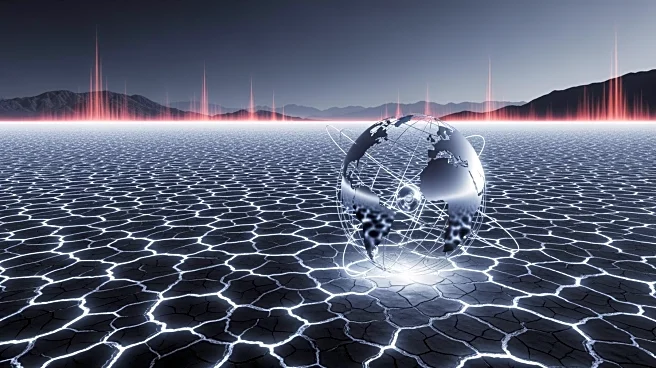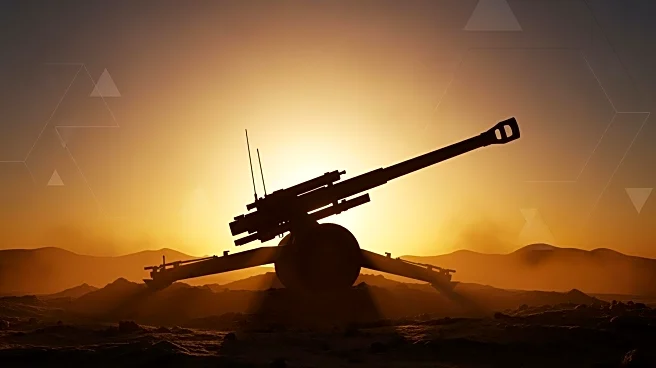What's Happening?
An editorial from The Jerusalem Post highlights the ongoing threat posed by Iran's nuclear ambitions, despite efforts to curb them. The article argues that the destruction of Iran's nuclear capabilities has not eliminated the threat but rather expanded
it throughout the Middle East. The editorial emphasizes the importance of firm action, clear redlines, and regional support to influence Tehran's decisions. The piece reflects on the broader implications of Iran's nuclear activities and the necessity for a coordinated regional response.
Why It's Important?
The expansion of Iran's nuclear threat across the Middle East has significant implications for regional stability and security. Countries in the region may face increased pressure to bolster their defenses and seek alliances to counterbalance Iran's influence. This situation could lead to heightened military tensions and a potential arms race, affecting global oil markets and international relations. The editorial underscores the need for a unified approach to address these challenges, which could shape future diplomatic and military strategies in the region.
What's Next?
The editorial suggests that countries in the Middle East must establish clear redlines and collaborate to deter Iran's nuclear ambitions. This may involve increased diplomatic efforts, military cooperation, and strategic partnerships to ensure regional security. The international community, including the United States, may play a crucial role in supporting these efforts through diplomatic channels and potential sanctions. The evolving geopolitical landscape will likely require ongoing monitoring and adaptation to address emerging threats.
Beyond the Headlines
The situation with Iran's nuclear threat raises ethical and legal questions about nuclear proliferation and the balance of power in the Middle East. It also highlights the cultural and historical tensions that influence regional politics. Long-term shifts in alliances and power dynamics could emerge as countries navigate these complex issues, potentially reshaping the geopolitical map of the region.















